New member to 200-mile plus club: The Hyundai Kona Electric received a rating of 258 miles per charge in the U.S. Environmental Protection Agency’s rating. For MPGe figures, it was given 132 city, 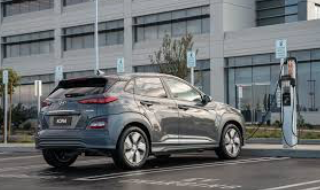 108 highway, and 120 combined. The range rating puts it in a small league with above 200-miles per charge vehicles that includes the Chevy Bolt, Tesla Model 3, Tesla Model S, and Tesla Model X. The Kona Electric is powered by a 64 kWh battery that has a 150 kW and 395 Nm electric motor (front-wheel drive), and a top speed of 104 mph. It has 100 kW CCS Combo DC fast charging capability.
108 highway, and 120 combined. The range rating puts it in a small league with above 200-miles per charge vehicles that includes the Chevy Bolt, Tesla Model 3, Tesla Model S, and Tesla Model X. The Kona Electric is powered by a 64 kWh battery that has a 150 kW and 395 Nm electric motor (front-wheel drive), and a top speed of 104 mph. It has 100 kW CCS Combo DC fast charging capability.
Lucid Motors finds $1B investor: PIF, the Saudi Arabian sovereign wealth fund that may be helping Tesla go private, may also be investing more than $1 billion in Lucid Motors and its high-performance electric models. According to sources familiar with the matter, that would be $500 million at fist and cash injections later based on goals being met. CEO Elon Musk has said that PIF may be investing up to $72 billion in taking Tesla off the stock market into a private company. PIF has already agreed to other investments including $45 billion into a giant fund led by Japan’s SoftBank Group Corp. that will be funding several new mobility technologies.
Getaround raising funds: Car-sharing/car rental firm Getaround is taking on Hertz and Avis with its “peer-to-peer car-sharing model. It’s been enough to raise $300 million from an investment round led by SoftBank. The car rental company has raised $400 million since its founding, with Toyota having previously made an early investment in the startup. Using the Getaround app, users can search for cars parked near them to choose one for a ride. The account is set up with the customer’s drivers license and credit card, and the app allows the user to unlock the door from their phone. These cars will be provided by other car owners who join the Getaround network and want to make side income off their car when they’re not using it.
Ford recalling some electric models: Ford is recalling the charging cords for more than 50,000 of its plug-in hybrid and battery electric cars sold in North America since they could cause fires in electrical outlets. The 120-volt charging chords came with certain 2012 through 2015 Focus all-electric cars and some 2013 through 2015 Fusion Energi and C-Max Energi plug-in hybrids. Ford reported that four fires had started in C-Max vehicles, but there no injuries. In three of the fires, owners had been using their own extension cord, which Ford had warned against doing. The fourth fire was inconclusive and Ford said it does not believe the fire was related to the cord. Dealers will be getting new cords for Ford owners to replace the first version; the new cords can sense high temperatures and shut off charging if necessary. Letters will be going out to owners starting next week.
CALSTART event next month: CALSTART will host the “Global Commercial Vehicle Drive-to-Zero” workshop on Sept. 11 at the Bay Area Metro Center in San Francisco. CALSTART will launch a new seven-year program during the event aimed at dramatically reducing greenhouse gas emissions by 2025 with a focus on global medium- and heavy-duty vehicle markets. It’s an affiliate event for the U.N. Foundation’s Global Climate Action Summit (GCAS) supporting the Paris Agreement. Under contract with the California Air Resources Board (CARB), CALSTART has done an extensive analysis, validated by global OEMs, and identified which segments of the medium- and heavy-duty vehicle market could most rapidly transition to zero- and near-zero emission technology. The event next month will kick-off a multi-year partnership between CALSTART and those who share the vision of making commercial zero emission vehicles widespread by 2025. Visit this page to register.

 provocative tweet Tuesday
provocative tweet Tuesday around 50 mpg by 2025, has set off opposition from state governors and other leading stakeholders. California and 18 other states promised yesterday to fight Trump’s proposal to weaken fuel efficiency and emissions standards — and California will use every legal tool to fight back. Gov. Jerry Brown pledged to, “fight this stupidity in every conceivable way possible.”
around 50 mpg by 2025, has set off opposition from state governors and other leading stakeholders. California and 18 other states promised yesterday to fight Trump’s proposal to weaken fuel efficiency and emissions standards — and California will use every legal tool to fight back. Gov. Jerry Brown pledged to, “fight this stupidity in every conceivable way possible.”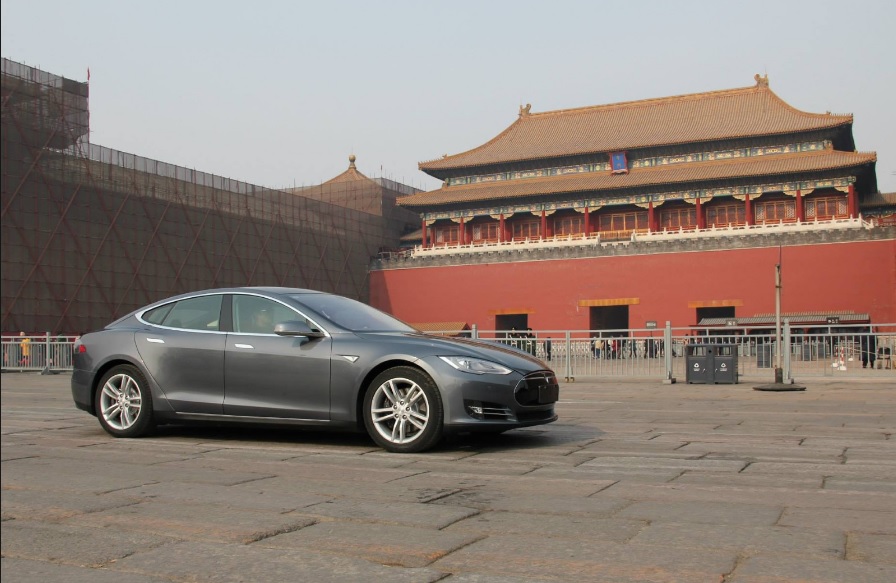 100% of the plant. BMW, which has been in Chinese joint ventures for years, will become the first foreign automaker to own a majority share of a Chinese automobile venture. The trade war continues to escalate, with China on Wednesday vowing to add another $200 billion in U.S. tariffs in retaliation to President Trump’s moves. Tesla CEO Elon Musk made the deal on Tuesday for the Shanghai plant, which the company said will double its vehicle manufacturing capacity. The plant could cost $1 billion to built, and construction will start early next year. Tesla could be the first of many companies setting up shop in one of China’s free-trade zone that sidesteps its typical requirement for joint-ventures with Chinese companies. Beyond expanding the BMW Brilliance Automotive partnership, BMW inked a deal with Great Wall Motor to produce Mini electric vehicles through a new 50:50 joint venture, Spotlight Automotive Limited, which will be dedicated to developing and producing EVs in China.
100% of the plant. BMW, which has been in Chinese joint ventures for years, will become the first foreign automaker to own a majority share of a Chinese automobile venture. The trade war continues to escalate, with China on Wednesday vowing to add another $200 billion in U.S. tariffs in retaliation to President Trump’s moves. Tesla CEO Elon Musk made the deal on Tuesday for the Shanghai plant, which the company said will double its vehicle manufacturing capacity. The plant could cost $1 billion to built, and construction will start early next year. Tesla could be the first of many companies setting up shop in one of China’s free-trade zone that sidesteps its typical requirement for joint-ventures with Chinese companies. Beyond expanding the BMW Brilliance Automotive partnership, BMW inked a deal with Great Wall Motor to produce Mini electric vehicles through a new 50:50 joint venture, Spotlight Automotive Limited, which will be dedicated to developing and producing EVs in China.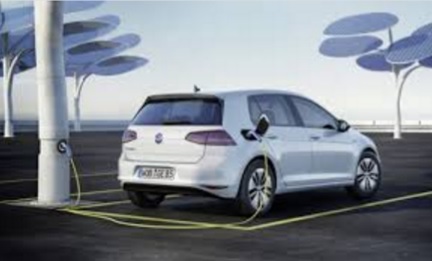 the list, so far securing $422.6 million going toward zero-emission heavy-duty trucks, buses, and charging stations. Texas was second, at $209.3 million, Florida third at $166.3 million, New York fourth at $127.7 million, and Pennsylvania in fifth place at $118.6 million. The next five on the list were Washington state at $112.7 million, Illinois at $108.7 million, Virginia at $93.6 million, North Carolina at $92 million, and Maryland at $75.7 million. School buses are a priority for several states that have received funds. More than 10 states have finalized their plans, according to the Sierra Club. State officials are deciding how the money will be spent meeting guidelines under the settlement. The funding must go towards reducing nitrogen oxides (NoX), a major component of air pollution. Only 15% can go toward the electric vehicle charging infrastructure. The settlement funds are being divvied up based on how many Volkswagen diesel cars with emission-cheating software were registered within each state.
the list, so far securing $422.6 million going toward zero-emission heavy-duty trucks, buses, and charging stations. Texas was second, at $209.3 million, Florida third at $166.3 million, New York fourth at $127.7 million, and Pennsylvania in fifth place at $118.6 million. The next five on the list were Washington state at $112.7 million, Illinois at $108.7 million, Virginia at $93.6 million, North Carolina at $92 million, and Maryland at $75.7 million. School buses are a priority for several states that have received funds. More than 10 states have finalized their plans, according to the Sierra Club. State officials are deciding how the money will be spent meeting guidelines under the settlement. The funding must go towards reducing nitrogen oxides (NoX), a major component of air pollution. Only 15% can go toward the electric vehicle charging infrastructure. The settlement funds are being divvied up based on how many Volkswagen diesel cars with emission-cheating software were registered within each state.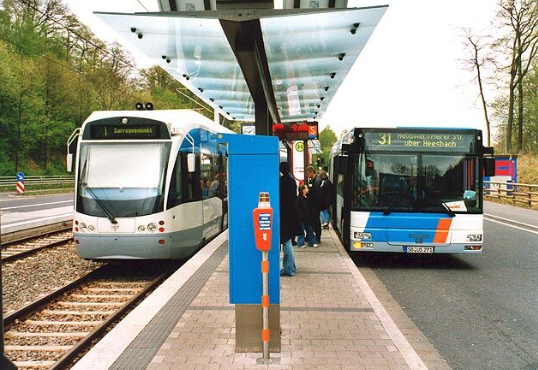 the vote activism from Koch brothers-funded Americans for Prosperity. That group is seeing success fighting against other public transit projects around the country. The Koch brothers want to see public transit go away and government funds go into restoring highways and roads. The Koch Industries conglomerate is a major producer of gasoline and asphalt, and also makes seatbelts, tires, and other automotive parts. The Trump administration had promised to back highway infrastructure funding, but that has faded away. Americans for Prosperity is now filling some of that void. Supporters of transit project investments say that having light-rail and more buses reduces traffic congestion and air pollution in a city. They also see transit as a platform for bringing in more electric and alternative fuel-powered buses. The
the vote activism from Koch brothers-funded Americans for Prosperity. That group is seeing success fighting against other public transit projects around the country. The Koch brothers want to see public transit go away and government funds go into restoring highways and roads. The Koch Industries conglomerate is a major producer of gasoline and asphalt, and also makes seatbelts, tires, and other automotive parts. The Trump administration had promised to back highway infrastructure funding, but that has faded away. Americans for Prosperity is now filling some of that void. Supporters of transit project investments say that having light-rail and more buses reduces traffic congestion and air pollution in a city. They also see transit as a platform for bringing in more electric and alternative fuel-powered buses. The 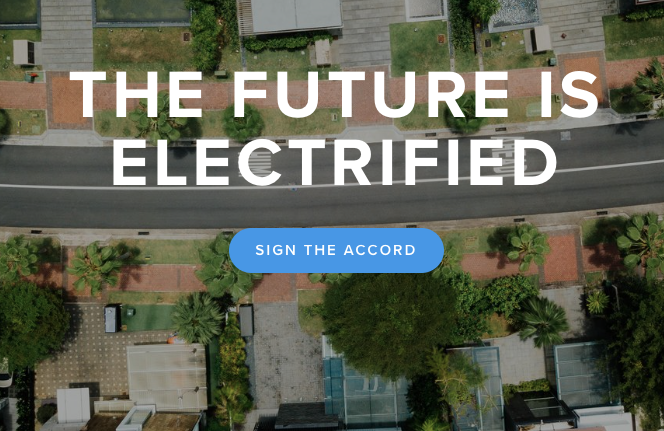 electrification can be moved forward. Principles have been endorsed on building the needed energy infrastructure to guide local, state, and federal policymakers. Other organizations endorsing the accord include CALSTART, Ceres, Consumer Federation of America, Consumers Union, Electrification Coalition, NRDC, Plug In America, Sierra Club, Union of Concerned Scientists, utility companies, and Clean Cities coalitions. Britta Gross, director, GM’s advanced vehicle commercialization policy, said that “the accord lays out the essential building blocks for a compelling energy infrastructure that we can all rely on for decades to come. Innovations in transportation electrification will benefit society as a whole — and cross-industry, multi-stakeholder cooperation is key.”
electrification can be moved forward. Principles have been endorsed on building the needed energy infrastructure to guide local, state, and federal policymakers. Other organizations endorsing the accord include CALSTART, Ceres, Consumer Federation of America, Consumers Union, Electrification Coalition, NRDC, Plug In America, Sierra Club, Union of Concerned Scientists, utility companies, and Clean Cities coalitions. Britta Gross, director, GM’s advanced vehicle commercialization policy, said that “the accord lays out the essential building blocks for a compelling energy infrastructure that we can all rely on for decades to come. Innovations in transportation electrification will benefit society as a whole — and cross-industry, multi-stakeholder cooperation is key.”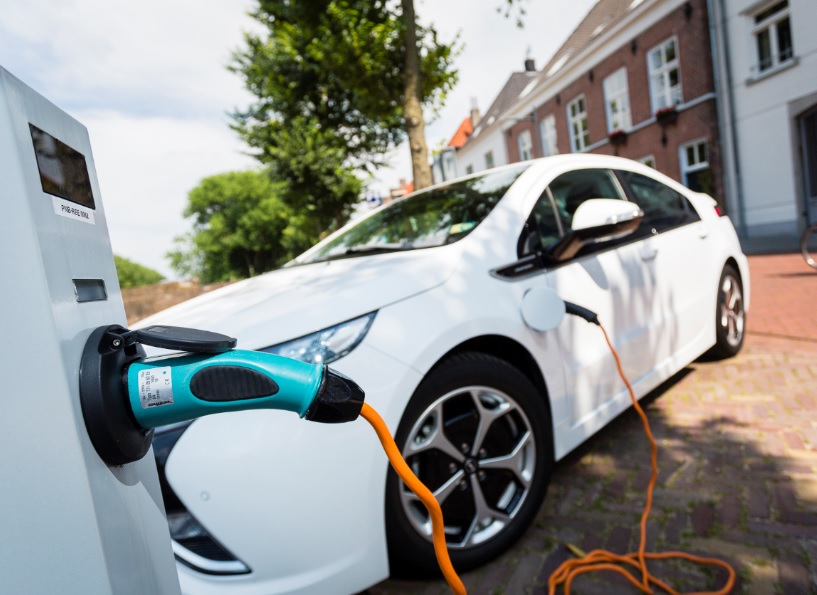 Scorecard, a three-tier ranking system acknowledging plug-in electrified vehicle state-level actions to support adoption of the technology. California, Maryland, and Connecticut made Tier 1; followed by Massachusetts, New York, and New Jersey at Tier 2; and Vermont, Rhode Island, Oregon, and Maine at Tier 3. The coalition used a weighted ranking system and appraised state-level policy actions for three categories: state-provided incentives to consumers; availability and support of public refueling infrastructure; and, outreach campaigns to educate the public. “While there are more than 700,000 EVs on U.S. roads today, electric vehicles are still only about one percent of U.S. light-duty vehicle sales. As state legislatures look to automakers to increase the availability and diversity of PEV models in all ZEV MOU states, the scorecard is meant to be used as a resource for the public and policymakers,” said Ben Prochazka, vice president of the EC. “It’s a tool that can be used to decide whether states should take new, or enhance current, actions that will accelerate consumer demand — in turn catalyzing both vehicle availability and more EVs on the road.”
Scorecard, a three-tier ranking system acknowledging plug-in electrified vehicle state-level actions to support adoption of the technology. California, Maryland, and Connecticut made Tier 1; followed by Massachusetts, New York, and New Jersey at Tier 2; and Vermont, Rhode Island, Oregon, and Maine at Tier 3. The coalition used a weighted ranking system and appraised state-level policy actions for three categories: state-provided incentives to consumers; availability and support of public refueling infrastructure; and, outreach campaigns to educate the public. “While there are more than 700,000 EVs on U.S. roads today, electric vehicles are still only about one percent of U.S. light-duty vehicle sales. As state legislatures look to automakers to increase the availability and diversity of PEV models in all ZEV MOU states, the scorecard is meant to be used as a resource for the public and policymakers,” said Ben Prochazka, vice president of the EC. “It’s a tool that can be used to decide whether states should take new, or enhance current, actions that will accelerate consumer demand — in turn catalyzing both vehicle availability and more EVs on the road.” manufacturer has seen both CEO and CFO jobs held by women; and GM is now the second of two current Fortune 500 companies to do so.
manufacturer has seen both CEO and CFO jobs held by women; and GM is now the second of two current Fortune 500 companies to do so. 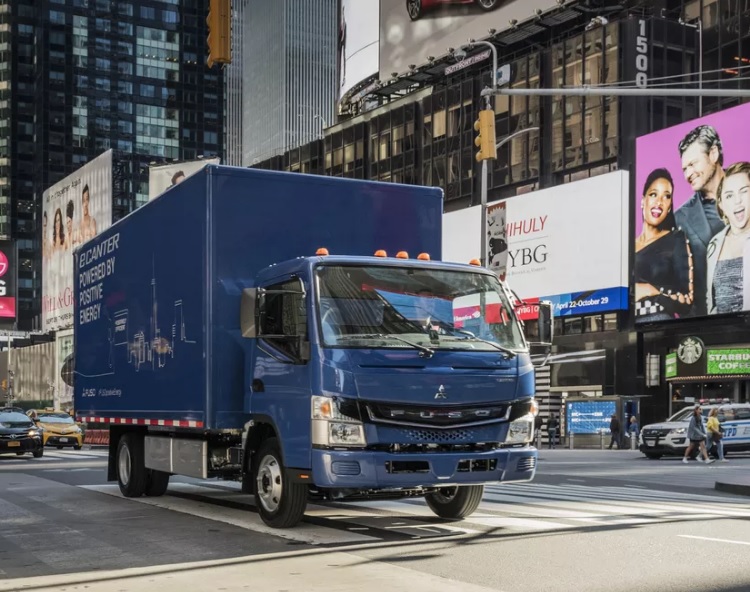 programs will launch later this year, and the company will go to full-scale production by 2021. During an event at Portland International Raceway in Portland, Ore., an electric version of its Freightliner Cascadia heavy-duty truck was revealed, along with an electric version of its M2 medium-duty truck. The eCascadia will go about 250 miles per charge, and the eM2 will go about 230, the company said. Daimler has previously shown off its Thomas Built battery electric Saf-T-Liner school bus and the electric Fuso eCanter delivery truck. “We are the undisputed global leader of the trucking industry and we want to remain in that position with regards to electric trucks,” said Martin Daum, global head of Daimler’s Trucks & Buses division.
programs will launch later this year, and the company will go to full-scale production by 2021. During an event at Portland International Raceway in Portland, Ore., an electric version of its Freightliner Cascadia heavy-duty truck was revealed, along with an electric version of its M2 medium-duty truck. The eCascadia will go about 250 miles per charge, and the eM2 will go about 230, the company said. Daimler has previously shown off its Thomas Built battery electric Saf-T-Liner school bus and the electric Fuso eCanter delivery truck. “We are the undisputed global leader of the trucking industry and we want to remain in that position with regards to electric trucks,” said Martin Daum, global head of Daimler’s Trucks & Buses division. to recommend, said Jake Fisher, CR’s director of automotive testing. The strong rating comes after
to recommend, said Jake Fisher, CR’s director of automotive testing. The strong rating comes after  soon be launched, built on the Toyota Prius Prime drivetrain. Subaru has been showcasing EV concepts for years, including the Viziv series. The company launched a conventional gas-electric hybrid version during the 2014 model year. The new version will have a larger battery pack and a plug for owners to charge up their PHEV. It can be driven as a normal hybrid using both gas and electric power, or driven on pure electric drive for local commuting, the company said.
soon be launched, built on the Toyota Prius Prime drivetrain. Subaru has been showcasing EV concepts for years, including the Viziv series. The company launched a conventional gas-electric hybrid version during the 2014 model year. The new version will have a larger battery pack and a plug for owners to charge up their PHEV. It can be driven as a normal hybrid using both gas and electric power, or driven on pure electric drive for local commuting, the company said.